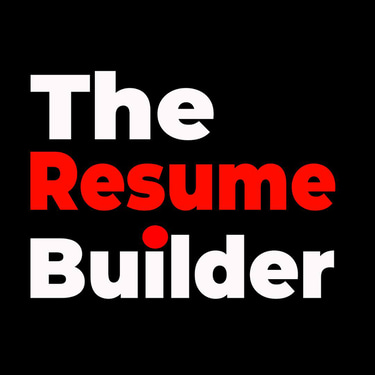Elevating Interview Dynamics
JOBS
Abhishek Kundu
12/21/20244 min read


Interviews are often viewed as a technical battleground, where candidates showcase their hard skills, industry expertise, and technical certifications. However, beneath the surface lies a less appreciated but equally crucial dimension: soft skills. Among these, critical thinking, problem-solving, decision-making, and responsibility stand out as pillars of a well-rounded candidate—qualities that can determine whether someone is not just capable of doing the job but excelling in it.
Unfortunately, these skills often take a backseat, overshadowed by an intense focus on technical prowess. This article explores why these competencies are indispensable and how highlighting them can make a difference in interviews.
Critical Thinking: Foundation of Effective Performance
Critical thinking is the ability to analyze information objectively, evaluate evidence, and form reasoned judgments. While technical skills answer the "what" and "how" of a job, critical thinking answers the "why."
For example, consider a software developer tasked with optimizing an application. While their technical expertise might enable them to write efficient code, critical thinking ensures they identify the root cause of inefficiencies, evaluate multiple solutions, and anticipate potential challenges.
In interviews, showcasing critical thinking can set candidates apart. Employers often assess this skill through situational questions such as, "Can you describe a time when you had to make a decision with limited information?" A well-thought-out response not only demonstrates technical knowledge but also highlights analytical abilities, adaptability, and a methodical approach to problem-solving.
Problem-Solving: Turning Challenges into Opportunities
Every job, regardless of the field, comes with its share of challenges. Problem-solving is the skill that transforms these challenges into opportunities for growth and innovation.
For instance, in a business context, a manager dealing with declining team productivity must analyze the root causes, such as low morale or lack of clear goals, and implement actionable solutions. Similarly, an IT professional facing a system outage must think quickly and deploy fixes while minimizing downtime.
During interviews, employers often gauge problem-solving abilities through behavioral questions such as, "Tell me about a time when you faced a significant challenge and how you resolved it." Here, the STAR method—describing the Situation, Task, Action, and Result—can be an excellent framework to present a structured and impactful answer. Highlighting creativity and resilience during problem-solving showcases a candidate’s potential to thrive under pressure.
Decision-Making: The Catalyst for Progress
While critical thinking and problem-solving help define the path, decision-making is the step that drives action. Effective decision-making involves weighing options, assessing risks, and making choices that align with organizational goals.
For example, a project manager deciding on resource allocation must consider budget constraints, timelines, and team expertise. Poor decisions can lead to project delays, cost overruns, or client dissatisfaction. Conversely, sound decision-making ensures smooth operations and long-term success.
In interviews, decision-making skills are often evaluated through scenario-based questions such as, "Describe a time when you had to make a difficult decision and how you handled the outcome." Candidates who can articulate their reasoning process, demonstrate accountability, and reflect on the results—whether positive or a learning experience—show they possess the maturity and foresight to lead effectively.
Responsibility: The Cornerstone of Trustworthiness
Responsibility is the bedrock of professional integrity. It’s not just about meeting deadlines or delivering quality work—it’s about taking ownership of actions, decisions, and outcomes.
For instance, an employee who takes responsibility for a missed deadline by acknowledging their oversight, analyzing contributing factors, and proposing preventive measures earns more respect than one who deflects blame. Responsibility builds trust, fosters collaboration, and ensures accountability within teams.
Employers value responsibility because it’s a predictor of reliability and ethical behavior. Questions like, "Can you give an example of a time when you went above and beyond to fulfill your responsibilities?" offer candidates the chance to emphasize their commitment to excellence, perseverance, and proactive mindset.
The Overemphasis on Technical Skills
While technical skills are undeniably important, they are only part of the equation. In the modern workplace, where interdisciplinary collaboration and adaptability are key, soft skills like critical thinking, problem-solving, decision-making, and responsibility often outweigh technical expertise.
Consider this: A highly skilled engineer who lacks problem-solving or decision-making abilities might struggle to adapt when unexpected challenges arise. On the other hand, an engineer with solid technical knowledge and strong soft skills can navigate complexities, collaborate effectively, and drive innovation.
Yet, many candidates focus primarily on showcasing technical achievements during interviews, underestimating the value of soft skills. This imbalance can lead to missed opportunities, as employers increasingly seek candidates who are not only technically proficient but also capable of thinking critically, solving problems, making sound decisions, and taking ownership.
How to Highlight Soft Skills During Interviews
To stand out in interviews, candidates must balance their technical qualifications with evidence of their soft skills. Here are some tips:
Integrate Examples: When discussing technical achievements, weave in examples of how you used critical thinking, problem-solving, or decision-making to achieve success.
Use the STAR Method: For behavioral questions, provide clear, structured responses that highlight your thought process and outcomes.
Emphasize Impact: Focus on the results of your actions, such as improved efficiency, cost savings, or enhanced team collaboration.
Show Self-Awareness: Reflect on lessons learned from challenging situations, demonstrating growth and adaptability.
Be Authentic: Employers value honesty and authenticity, so share genuine examples that showcase your strengths and values.
In today’s competitive job market, technical skills might get you in the door, but soft skills will set you apart. Critical thinking, problem-solving, decision-making, and responsibility are not just desirable traits—they are essential for success in any role. By recognizing their importance and articulating them effectively during interviews, candidates can present themselves as well-rounded professionals ready to tackle challenges, drive innovation, and contribute meaningfully to their organizations.
Expert in
Professional Resume Writing Company in Kolkata, West Bengal
Professional Resume Writer in Kolkata, West Bengal
ATS Resume Writing in Kolkata, West Bengal
GET IN TOUCH
theresumebuilderindia@gmail.com
+91 89813 60947
© 2015. All rights reserved by Abhishek Kundu Resume Writing Co.
abhishek@atsresumewriting.in
